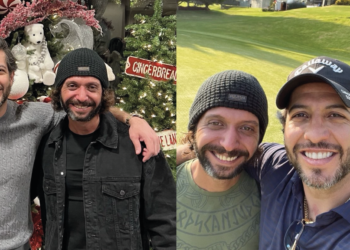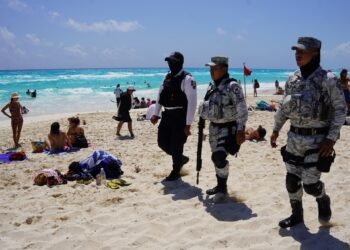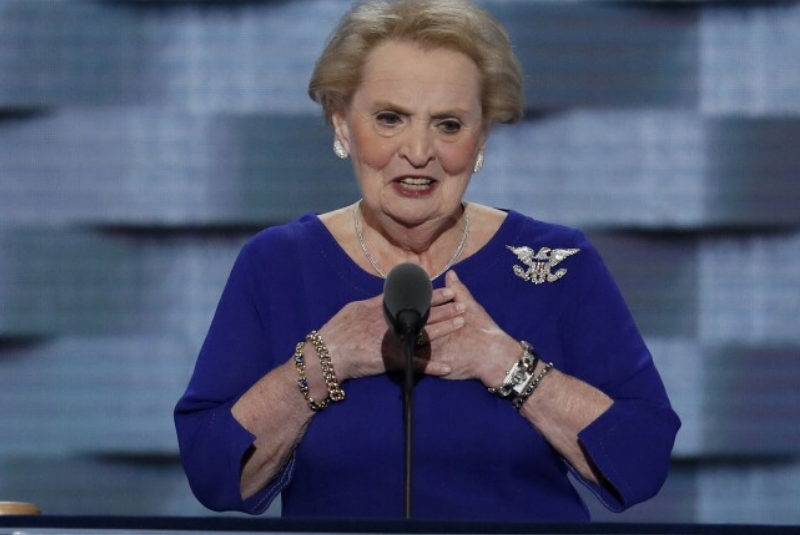Dangling from his 14th-floor window, Oluwaseun Talabi could hear people on the ground yelling up, urging him to climb back inside his apartment, No. 113, in the 24-story apartment building. A rope of knotted sheets hanging next to Oluwaseun didn’t reach the ground, more than 100 feet below.
“People were shouting, ‘Stay in your flat. They’re going to come and help. They’re going to come and help you,’” he says.
No, they’re not, Oluwaseun remembers thinking. “I wasn’t looking to die in there,” he told the media.
He survived, but at least 80 people died in the Grenfell Tower fire, and the death toll may rise. One month later, he’s still struggling to make sense of it all.
Survival mode
The fire, on June 14, had been burning for more than an hour by 2 a.m., and Oluwaseun was in “survival mode,” he says.
The Nigerian-born Oluwaseun, 30, looks strong and muscular, but he says he has lost a lot of weight since the blaze.
Hanging from the window ledge that morning, he asked his girlfriend, Rosemary, to hand him their 4-year-old daughter. He planned to climb down the sheets with the child in his arms. “But my daughter wasn’t having it,” he says, describing her as hysterical.
Flames had already shot up one side of the tower but were not yet visible from the family’s west-facing window. Investigators say a faulty refrigerator started the fire on the fourth floor before it spread to the top floor and, by about 2 a.m., began moving rapidly toward the west side of the building.
Just 15 minutes before Oluwaseun climbed out his window, a fire brigade arrived at apartment 113, not offering an escape route but ushering in five neighbors.
“‘Listen, your flat seems to be the safest flat at the moment,’” Oluwaseun says one of the firefighters told him. “‘We’ll be back,’ they said.”
“The Syrian refugees, they brought them into my flat,” Oluwaseun says, referring to brothers Mohammad and Omar Alhajali. “They brought an Irish guy, called Dennis … Zainab, her 2-year-old son,” Oluweseun says, counting on his hand. “So there was eight of us altogether.”
Only four of them would escape apartment 113 alive during the chaos of the next two hours.
Grenfell Tower apartment 113
With his crying daughter still inside, Oluwaseun struggled to hoist himself back through the window; he wasn’t going down alone.
“Guess who helped me up? One of the guys that is dead,” Oluwaseun says, spitting out the word “dead.” “The Syrian guy and his brother pulled me back in because I couldn’t pull myself back in.”
One of the brothers, Mohammad, didn’t survive, and Oluwaseun slows his vivid narration of the night to note that Mohammad’s last act on earth, perhaps, was saving his life.
“The Syrian guy didn’t deserve to die,” Oluwaseun says. “I’m here, I could’ve died. I don’t deserve it.”
Mohammad, 23, lived with Omar, 25, and their best friend from Deraa, Syria, Mahmoud Alkarad, 25, next door in apartment 112.
Mahmoud happened to be out for the night, 10 minutes down the road when the fire started.
“I saw Mohammad. He was at the window,” Mahmoud, who arrived outside shortly after 1 a.m., says. He called Mohammad’s phone. “I said to him, ‘Where are you?’ … ‘Just raise your hand’” so Mahmoud could identify him.
That was the last time Mahmoud ever saw Mohammad, raising his hand at the window. Mahmoud spent the next two hours desperately running from fireman to emergency responder, begging everyone to rescue the eight people in apartment 113.
At 2 a.m., Oluwaseun says, everyone in apartment 113 was still alive. But the next 90 minutes played out as an incomprehensible, chaotic human tragedy.
“It was like they brought them in my flat to die,” he says.
Oluwaseun remembers Zainab on the phone with her brother, her young son sitting next to his daughter on their bed at one point. He remembers Dennis’ face so blackened that Rosemary hadn’t recognized him. And he remembers one of the Syrian brothers calmly reading the Quran on the bed.
Mostly, Oluwaseun remembers his fierce tunnel vision as he tied sheets together and Rosemary’s calm. Sometime after 3 a.m., he says, he tied his daughter onto his back and prepared to climb out the window again. This time, Rosemary was going too.
“This might sound selfish, but God forgive, I hope it’s not selfish … but I was thinking about me first, my partner and my daughter — and everybody else after.”
Before he climbed back out the window, the fire brigade yelled “Run” through the black smoke. Why at that moment and not earlier, Oluwaseun is not sure.
“I grabbed my missus by her hand, my daughter tied to my back already, and I didn’t look back. I don’t know who followed us,” he says. “I don’t know who stayed in the building. We just ran.”
At some point during those 90 minutes, Mahmoud received a phone call from Mohammad, still in apartment 113.
“‘I can’t find Omar,’ he says … What do you mean you can’t find Omar? He was with you,” Mahmoud recounts the conversation. “He said to me, ‘It’s smoky in the flat. We can’t see each other.’ I said to him, ‘Just try to shout and say, Omar.’ He was shouting so high. He was shouting, and he didn’t answer.”
‘Have you seen my brother?’
By 3:30 a.m., Omar, Oluwaseun, Rosemary and their daughter had battled their way to the ground floor.
“One of the Syrian guys, the one that survived. He came up to us, and he goes, ‘Have you seen my brother?’” Oluwaseun hadn’t.
Mahmoud located Omar, and they called Mohammad again. “‘Where did you go? Why did you leave me?’” Mohammad asked Omar, remembers Mahmoud. “We don’t know exactly what happened.”
Mahmoud had one last phone call with Mohammad, who he says told him, “Just tell my mom to forgive me and please tell her I love them, all the family.”
As flames reached the windows of apartment 113, Mahmoud says, he thought to himself, “Mohammed, he’s not alive. He passed away.”
Sitting in a garden with the charred tower overhead, Mahmoud says, “We saw a lot of things in our life.”
Mahmoud escaped Syria a couple of years ago, making his way to Libya and surviving a journey across the Mediterranean Sea in a small wooden boat to Italy. He flew to the United Kingdom last year to build a new life with his two childhood friends. And it was finally going well, he says. He had just started a job at a local bakery.
“I lost a lot of things from Syria … everything I had. I lost many times … Every time we’re losing,” Mahmoud says. “What we can do? We try to live again.”
In recent days, Mahmoud has signed a new yearlong lease, but Oluwaseun, Rosemary and their daughter, like many survivors, are still staying in a hotel room, four weeks later, despite the promises of British politicians.
“We’re not charity cases. I worked hard. We worked hard,” Oluwaseun says.
He’s a site supervisor, and Rosemary is a science teacher.
“We didn’t ask for this. We lived our life like everybody else — wake up, go to work, come back, wake up, go to work, come back.”
Since the fire, Oluwaseun has been afraid of the dark and can’t sleep.
“It keeps playing in my head,” he says, his dark skin going pallid. “I could’ve saved the little boy. Even if I couldn’t do nothing about the adults, could’ve saved the little boy. That just keep playing in my head … For what reason? Why? Why?”









